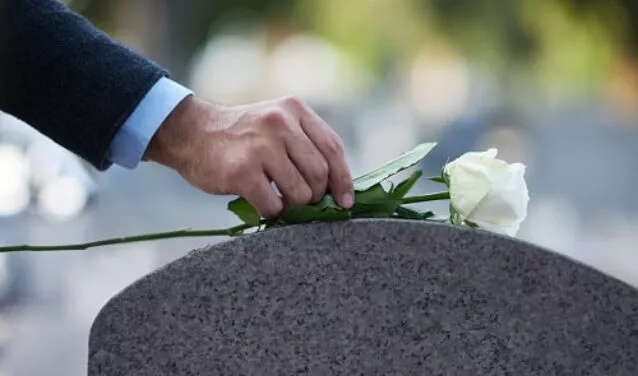
how is the repatriation of a body to Morocco organized? It sometimes happens that a death occurs in a country other than that of the deceased’s origin. Whether during a trip, or during the COVID 19 health crisis, many people find themselves having to request the repatriation of a loved one’s body to Morocco.
What are the formalities involved in repatriating a loved one’s body to Morocco and respecting the deceased’s last wishes? Who should I contact to have the body repatriated and buried close to home? How much does it cost to fly a body to Morocco? Who is responsible for organizing the entire funeral and transporting the body? What means are available to repatriate the body? Does travel insurance cover this?
AEROAFFAIRES is used to organizing body repatriation. We give you all the important information you need to know (prices, administrative procedures, authorizations, deadlines, etc.)

Photo credit : Pxhere
How do I obtain authorization to transport a body for burial in Morocco?
1. Who issues the authorization to transport a body?
Morocco’s Ministry of Foreign Affairs and International Cooperation is responsible for issuing the transfer authorization.
2. Which organization should I contact to request authorization to transport a body by air to Morocco?
Following the death of a loved one, in order for the body to be transported, authorization must be requested from the consular services (local authorities) where the death occurred (the place of death).
3. What information is required to obtain authorization for the transfer of the body?
- surname and first name of the deceased ;
- date and place of death ;
- cause of death ;
- complete filiation of the deceased ;
- address and telephone number of family in Morocco;
- copy of the CNIE or Moroccan passport of the deceased, or failing this, an identity document of the deceased and a copy of the CNIE or Moroccan passport of a close relative;
- place of burial in Morocco ;
- date of arrival of remains in Morocco;
- border post of entry of remains;
- proof of payment of repatriation costs (insurance or other).
4. What documents do I need to obtain authorization?
- death certificate, obtained after the death has been declared;
- copy of the CNIE or Moroccan passport of the deceased, or failing this, an identity document of the deceased and a copy of the CNIE or Moroccan passport of a close relative;
- hermetically sealed burial certificate issued by a funeral home or undertaker;
- health certificate of non-contagion issued by the competent medical authority;
- authorization to leave the country, issued by the competent local administrative authority.
5. On arrival in Morocco
Upon arrival of the deceased’s body in the country of origin, the person designated in the repatriation documents must receive the remains. He or she may be accompanied by the competent funeral services.
💡 Practical tip:
- Contact the Moroccan embassy or consulate in the country concerned to confirm local requirements.
- Allow extra time for administrative procedures.
- A company specializing in funeral repatriation can assist you with the formalities.
This procedure ensures that the transfer complies with Moroccan and international regulations.
Destitution: how do I pay for the repatriation of a body?
Moroccan families living in destitution can request the repatriation of the body of a deceased person who died abroad. Supporting documents are required.
1. To whom should I submit my request for repatriation?
Requests for repatriation of the body to Morocco should be submitted to the Ministry in charge of Moroccans living abroad and Migration Affairs.
2. Where do I apply to have my funeral repatriated to Morocco?
For a decision, the application must be submitted to the consular services, which will then forward it to the Ministère Délégué Chargé des Marocains Résidants à l’Étranger et des Affaires de la Migration.
The file can also be submitted directly to these departments.
What are the documents required for repatriation?
The documents required to transport the remains of a deceased person by air are :
- information sheet on the financial situation of the deceased and the applicant ;
- declaration on honor (state of indigence of the family and the deceased) ;
- certificate of non-taxation of the deceased in Morocco, or certificate of social assistance or pension from the host country, or copy of the deceased’s last payslip or unemployment certificate, or tax declaration, or bank statement;
- proof of more than six (06) months’ residence abroad;
- certificate of indigence for the person concerned, issued by the consular services;
- certificate of indigence for the deceased’s family, issued by the consular services if they live abroad;
- attestation of indigence for the family issued by the Moroccan authorities if they live in Morocco;
- undertaking to be present at the airport of arrival to receive the coffin.

Photo credit : Pxhere
How much does it cost to repatriate a body to Morocco?
The price of funeral transport by air is variable and depends on the country of departure. Generally speaking, however, it ranges from €15,500 to €22,000. The price depends on several factors:
- the service required ;
- the place of death and destination;
- the mode of transport used (air or ground);
- the weight of the coffin.
What are the conditions for transferring a body from the place of death to the country of origin?
The body of the deceased must first be placed in the coffin in the country of death.
The choice of coffin is made in the country of death, and must be hermetically sealed. Sometimes, conservation care is required.
What type of coffin for repatriation?
To organize the repatriation of a body, the airline will require the coffin to be airtight. This is a metal coffin (zinc or aluminum) placed inside the traditional casket. This is also known as a “leaded coffin”.
The thin layer of metal is camouflaged by fabric upholstery. Before the coffin is closed, a metal lid is fitted to ensure that it remains airtight.
In addition, a porthole, or window, can be made to allow relatives to see the face of the deceased. Finally, for air travel, the coffin must be 22 millimeters thick.

Photo credit : Pixabay
Is body preservation necessary to repatriate a body to Morocco?
Body conservation treatments are post-mortem treatments. In other words, they are performed on the body of the deceased by a thanatopractor. In this way, the body of the deceased is better preserved.
Preservation treatments are generally carried out at the request of the deceased’s family. They are subject to a charge.
When repatriating a body, thanatopraxy care depends on the legislation in force in the country of burial.
For repatriation of a deceased person from France to Morocco, this care is compulsory.
It should be noted that some airlines also impose their own regulations on conservation care and coffin standards.
How to anticipate a funeral repatriation?
1. Repatriation/travel insurance
When traveling abroad, it’s essential to take out repatriation or travel insurance.
These policies normally include coverage for repatriation in the event of death.
Would you like to know what insurance covers in the event of death abroad? Read the terms and conditions carefully. That way, you’ll know exactly what the insurance covers.
2. Death benefit insurance
For people living in a country other than their country of origin, it is possible to take out specific repatriation insurance or death insurance beforehand.
These people contribute a certain amount each year. In the event of death, this can relieve bereaved family members of any responsibility for repatriation costs and funeral arrangements.
The costs associated with a death can be considerable. They may include :
- burial
- cremation
- cremation
- repatriation of the body, etc.
This also facilitates the administrative process, since the insurance company will take care of all the paperwork and contact the funeral directors directly.
For example, an insurance policy may offer to take care of the following:
- Take charge of the organization and cost of transporting the deceased’s body from the place of committal to the airport nearest to the burial site (cemetery or other) decided by the family.
- Cover any transportation costs incurred for burial or cremation.
- Offer a return trip to one of the deceased’s relatives to accompany the coffin to the funeral site and attend the funeral.
- Coverage of post-mortem care.
3. Repatriation of a body to Morocco without insurance
If the deceased has no insurance policy, then the costs are the responsibility of the next of kin.
How long does it take to repatriate a body to Morocco?
To repatriate a body to Morocco, it generally takes 2 days by air. But this also depends on the administrative procedures involved.
Do you need information or a quote for the repatriation of a loved one’s body to Morocco?
Our experts AEROAFFAIRES are available to answer your questions on medical or funeral repatriation, or to charter a flight or medical aircraft to Morocco. Contact us 24/7 on +33 (0) 1 44 09 91 82.
See also our articles on repatriation to France, repatriation to Tunisia and repatriation to Algeria.


